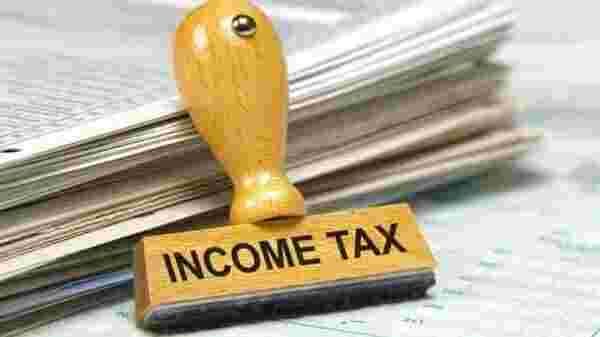
Postponing tax planning until the end of financial year runs the risk of making mistakes that can derail your overall financial plan. Prableen Bajpai, founder, FinFix Research and Analytics said some people go as far as taking a loan to make last-minute investments just to save tax. “People take expensive personal loans in February/March to utilize Section 80C tax saving options. They forget that they might be losing more money through interest than they will save in tax," she said.
To ensure that you don’t make any costly mistake in your last-minute tax planning exercise, we list out five common mistakes that you should avoid.
Miscalculating taxable income
To calculate your tax liability, you should first add all your incomes. The net taxable income will give you a clear picture of how much tax you need to save. A common mistake taxpayers make is not including the interest income from fixed deposits (FDs), tax-saving FDs, and recurring deposits, which are fully taxable. Taxpayers do this believing they don’t need to pay tax as the bank has deducted TDS. But, 10% TDS doesn’t cover the full tax liability of those in higher tax slabs, so they would have to calculate the additional tax they need to pay.
Interest earned on balance in a savings account is tax-exempt up to ₹10,000, beyond which this too is added to the taxpayer’s income and taxed at applicable tax slab. Similarly, not adding capital gains from redemption or systematic transfer plan (STP) from a liquid fund is another common mistake. Withdrawal before three years is treated as short-term capital gain and taxed at your slab rate.
Another income that taxpayers miss including is deemed rent. The Income Tax (IT) rules treat vacant residential properties as ‘deemed to be let out’ and require the homeowner to pay tax on notional rent. Up to two residential properties are exempt from this rule, provided they are either self-occupied or vacant. If you have more than two properties and any of these are vacant, you will have to pay tax on notional rent.
Calculating the correct taxable income is especially crucial for those taxpayers who want to bring their net taxable income below the ₹5 lakh tax exemption threshold by making tax-saving investments.
For instance, say, a taxpayer miscalculates her income as ₹6.9 lakh. She makes investments worth ₹1.5 lakh under section 80C, which combined with a standard deduction of ₹50,000 brings down her tax liability to zero. However, if she has income over ₹10,000 from interest, rent, capital gains, or any other source that she has missed adding, her tax outgo will be at least ₹12,500.
Expenditures under Section 80C
Before you rush to exhaust the ₹1.5 lakh tax deduction under section 80C through investments, check eligible expenditures that you can claim. Children’s tuition fee, repayment of principal component of a home loan, life insurance premiums qualify for a deduction. If you have acquired or constructed a property, then stamp duty, registration fee, and even property transfer expenses are also eligible.
Deduct eligible expenses from ₹1.5 lakh and the balance amount is how much you need to invest to fully utilize Section 80C.
Overlooking liquidity, returns on investment
Experts say tax planning is a subset of overall financial planning and not vice-versa. “People should practice goal-based investing first and only use tax saving as one of the features to compare different investment products," said Kartik Sankaran, founder, Fiscal Fitness. “For instance, the National Pension Scheme (NPS) is a product with good intentions to force long-term savings, however, it lacks flexibility as you are locked-in until 60 years of age." One should ensure that their short-term needs are taken care of before locking ₹50,000 in NPS just to save additional tax under Section 80CCD(1B).
Similarly, unit-linked insurance plans (ULIPs) may seem like a better market-linked option over equity-linked saving scheme (ELSS) funds as they offer the flexibility to switch between equity and debt without any tax implications, but they score low on liquidity. Traditional life insurance policies, which are sold aggressively during the end of the fiscal, are the worst investment option as they don’t align with any of your financial goals. “Endowment plans and pension plans do not provide either adequate insurance cover or commensurate returns for such a long holding period," said Sankaran.
Ignoring complete tax structure
Many investment products that offer a deduction on investment carry tax implications on accrual and withdrawal amounts. Ignoring the latter will result in a return expectation mismatch.
For instance, interest earned on tax-saving FDs is fully taxable, which lowers the net returns. Post-tax return on an FD promising 5.5% interest rate will be 4.3% and 3.7% for tax slabs of 20% and 30%, respectively.
Sankaran takes the example of NPS, wherein 40% of the total maturity proceeds have to be mandatorily invested in an annuity plan.
“The investor is forced to buy a chunk of low yielding annuities, income from which are taxed on slab rates." The remaining 60% maturity corpus is tax-free.
Missing little-known options
Your employer must be sending you the final call to claim leave travel allowance (LTA) exemption for the current fiscal. Similarly, submit the required documents to claim house rent allowance (HRA), if not done already, so that your employer can include the deduction in your Form 16.
If you bear the expenses of your uninsured elderly parent’s medical treatment and medicines, don’t rush to buy health insurance for them now. Section 80D allows deduction of up to ₹50,000 on medical expenses paid for senior citizen parents who are not covered by a health insurance policy.
If you buy a policy now, you will only be able to claim deduction on the premium that you will pay and not on the money already spent on their treatment in the current fiscal. Defer this purchase until the next financial year.










